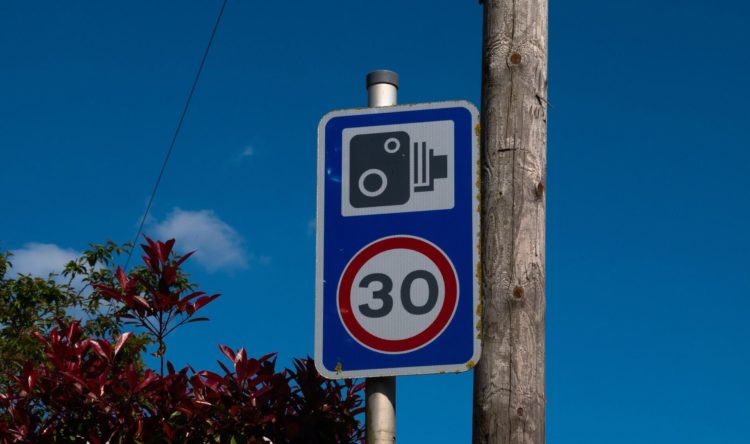Penalty points for flouting seat belt law
New report by Direct Line and The Parliamentary Advisory Council for Transport Safety (PACTS) calls for the introduction of three penalty points for not wearing a seat belt
- Time for new road safety regulation – 72 per cent of the British public believe penalty points should be mandatory for those caught not wearing a seat belt
- More than one in four (27 per cent) of those who die in road collisions are not wearing seat belts
- Over 1,200 people killed or seriously injured in road collisions are not wearing seat belts
New research from Direct Line Car Insurance1 reveals the British public overwhelmingly support the introduction of penalty points for those found not to be wearing a seatbelt when driving, with 72 per cent backing a change to the law.
In Northern Ireland failing to wear a seat belt carries three penalty points unlike England, Scotland and Wales. Of those calling for the introduction of penalty points, 58 per cent of the public believe three points would be an appropriate punishment. However, 30 per cent believe the penalty for breaking the law should be six points, the same as when using a hand-held mobile phone when driving. One in twenty (5 per cent) Brits even believe flouting seat belt laws should result in an automatic driving ban of at least three months.
The current penalty if issued a Fixed Penalty Notice for not wearing a seat belt is £1002, just twenty per cent of the average weekly wage in the UK, with a maximum penalty of £5003 (if taken to court) only just exceeding the average weekly wage.
There is public misconception over who is responsible for ensuring adult passengers wear a seat belt in their car. Only 35 per cent of Brits know the driver of the car and the adult passengers are legally responsible for wearing a seat belt. Over two fifths (43 per cent) mistakenly think it is only the responsibility of the driver to ensure adult passengers in their car are wearing a seat belt.
This research comes as Direct Line and The Parliamentary Advisory Council for Transport Safety (PACTS) launch a report calling for the introduction of harsher penalties for those not found to be wearing a seat belt.
The clear dangers of not wearing a seat belt are highlighted in the report, as more than a quarter (27 per cent) of those who died in cars on the roads in 20174 were not wearing a seat belt. This compares to 22 per cent in 2014. Of the 787 people killed on the road in cars in 2017, over 200 were not wearing a seat belt, which presents a worrying picture when combined with over 1,000 individuals seriously injured in the same year for the same reason.
Recommendations set out by Direct Line and The Parliamentary Advisory Council for Transport Safety include introducing three penalty points for not wearing a seat belt, greater enforcement of the seat belt law through targeted, intelligence-led measures and increasing public perception of enforcement as evidence shows that this has a significant impact on seat belt wearing.
David Davies, Executive Director, PACTS, said: “It has been a shock to find that more than one in four people killed in a car were not wearing a seat belt. In the event of a collision, wearing a seat belt is the single most effective thing that a driver or passenger can do to avoid serious injury.
“Our report shows the road safety community has taken its eye off the ball. It points to ways to increase wearing among the minority who forget or choose not to do so. In particular, PACTS recommends making it an endorsable offence, with three penalty points. This would have no impact on most drivers or passengers but could substantially reduce the number of people killed or seriously injured each year.”
Not wearing a seat belt is seen as a conscious choice rather than due to a lack of awareness of the risks. The majority (80 per cent) of people think when someone doesn’t wear a seat belt, they are doing so despite knowing the risks. Over two thirds (70 per cent) say people don’t wear a seat belt because they don’t believe they will ever be involved in an accident. A third (34 per cent) believe the government and road safety campaigners need to do more to teach people about the dangers of non-compliance.
Gus Park, Managing Director of Motor Insurance at Direct Line, said: “Thirty six years ago mandatory seat belt wearing was introduced and has proved to be one of the most effective road safety measures in the history of motoring. It may not prevent collisions, but it can and does prevent death and serious injury.
“We know that the vast majority of drivers and passengers wear a seat belt, however, the failure of a minority to consistently wear a seat belt is associated with a disproportionately high number of serious injuries and deaths with over 1,200 casualties in 2017.
“This report shines a spotlight on an area that seems to have been recently overlooked. It makes specific and practical recommendations with three key areas of focus: better enforcement, better education and better data collection with the intention of increasing seat belt wearing and ultimately reducing deaths and serious injuries on our roads.”
Need for policy change
Just one in seven (15 per cent) Brits believe the current system of no endorsements on a licence should continue. Penalty points were introduced for seatbelt non-use in Northern Ireland in 2007 and drivers receive points for not wearing a seatbelt themselves or carrying an unbelted passenger who is under the age of 14. The Republic of Ireland introduced a points system in 2003 and this was followed by immediate and significant reduction in road traffic accident rates, road deaths (11 per cent reduction in the first year) and non-fatal injuries (20 per cent reduction in the first year).
Please visit the full report here.






